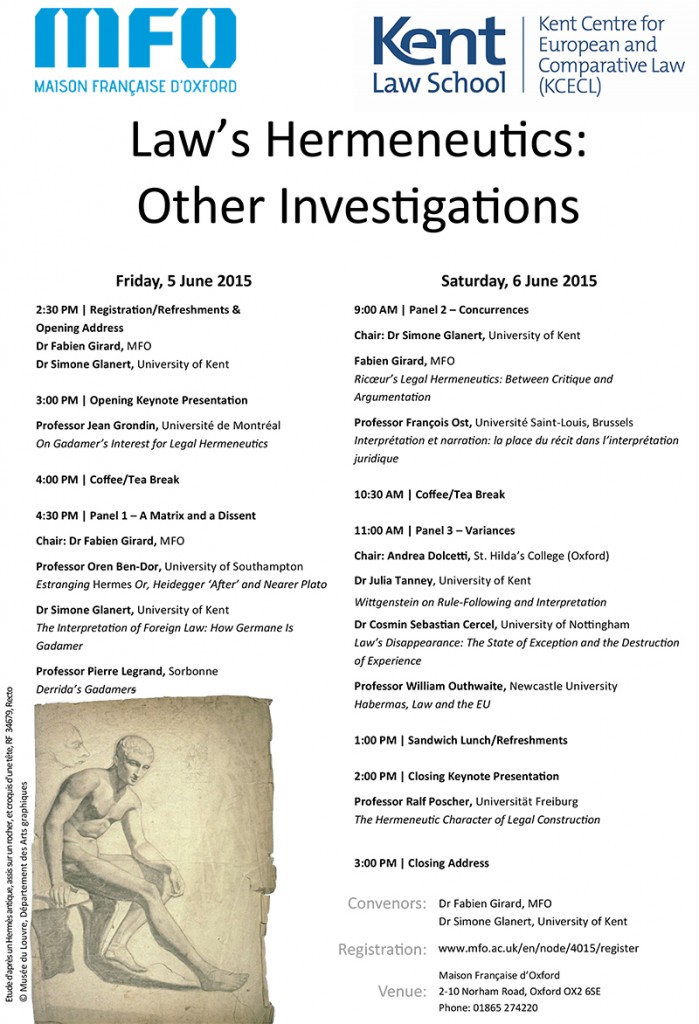A two-day interdisciplinary workshop exploring legal hermeneutics will be co-organised by the Kent Centre for European and Comparative Law (Kent CECL) and the Maison Française d’Oxford (MFO).
Director of Kent CECL Dr Simone Glanert said: ‘The aim of this workshop, which will be open to the public, whether lawyers or non-lawyers, is to gather approximately 10 leading academics hailing from different scholarly and cultural horizons with a view to revisiting legal hermeneutics by making particular reference to philosophy, linguistics and translation studies.’
Hermeneutics, the art of interpreting texts, is used as a technique in critical legal studies. It is the study of the methodological principles of interpretation and explanation. The workshop ‘Law’s Hermeneutics: Other Investigations’ will be held on Friday 5/Saturday 6 June in Oxford.
An opening keynote presentation on ‘Gadamer’s Interest for Legal Hermeneutics’ will be delivered by Professor Jean Grondin from the Université de Montréal. The writings of intellectuals such as Jacques Derrida, Michel Foucault, Paul Ricoeur and Ludwig Wittgenstein will also be considered during a series of panel presentations. Professor Ralf Poscher from the University of Freiburg will close the conference with a presentation on the ‘Hermeneutic Character of Legal Construction’.
The workshop has been co-convened by Dr Glanert and Dr Fabien Girard from MFO. Dr Glanert’s research focus lies within the fields of European and comparative Law, and legal theories and philosophy.
In addition to being Director of the English and French Law Programme at Kent Law School, Dr Glanert is also a member of the Executive Editorial Board of the American Journal of Comparative Law and is President of the International Scientific Committee, Maison des Sciences de l’Homme – Alpes, Grenoble, France.
Amongst Dr Glanert’s most recent publications are two edited books, published by Routledge, Comparative Law: Engaging Translation and Special Issue on “Law in Translation”.
The Kent CECL provides a framework for the further development of Kent Law School’s extensive activities in the areas of European and comparative law. It is founded on the conviction that the disciplines of comparative law and European Union law should inform one another both intellectually and practically.

